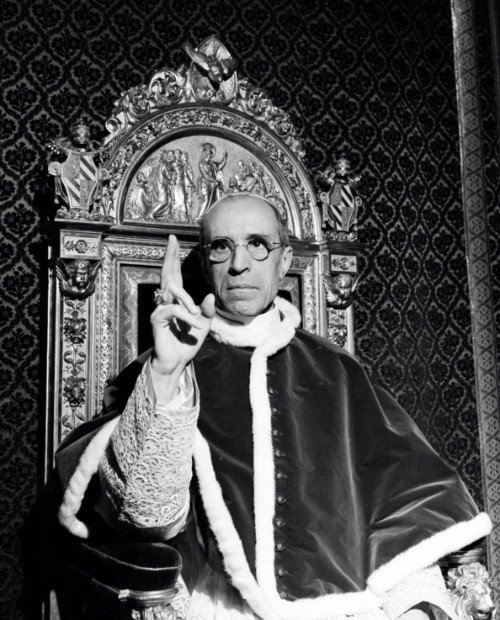For decades, historians have argued over the role played by the Vatican and Pope Pius XII in the persecution of Jews during the German Third Reich and the Second World War. Johan Ickx, director of the Vatican archives, defends Pius, saying the Pope chose to remain silent even as he instructed clergy around the world to help Jewish communities.
But, Ickx said in a recent interview, don’t hold your breath looking for proof.
“Pius XII was aware of his silence,” Ickx told a small group of Vatican journalists on Tuesday. But “silence is golden” in the world of diplomacy, Ickx argued, and Pius’ silence was essential in allowing the church freedom of action to help and save persecuted Jewry.
“It was the Pope who gave the instruction to do this,” he said, despite “the great fear of being discovered.”
Pius XII reigned in the turbulent period between March, 1939, and October, 1958. Before his election, he had been a Vatican diplomat in Germany and in England, and his experience dictated his mild and conciliatory manner of speech as Pope. After aligning itself with Germany during the First World War, the Vatican publicly kept its distance from the Nazi regime and drew closer to the Western powers, Ickx said. Documents show Pius supported the German resistance and worked closely with Allied forces.
The Pope’s public silence on the Holocaust became especially controversial after the publication of Hitler’s Pope, a 1999 book by the journalist John Cornwell, which portrayed Pius XII as an anti-Semite more concerned about securing the future stability of the Vatican than saving Jewish lives. Critics and supporters of this view took to writing books and articles defending their interpretation of history in what were later known as the “Pius Wars”.
Read the article by Claire Giangrave on Sight Magazine.

